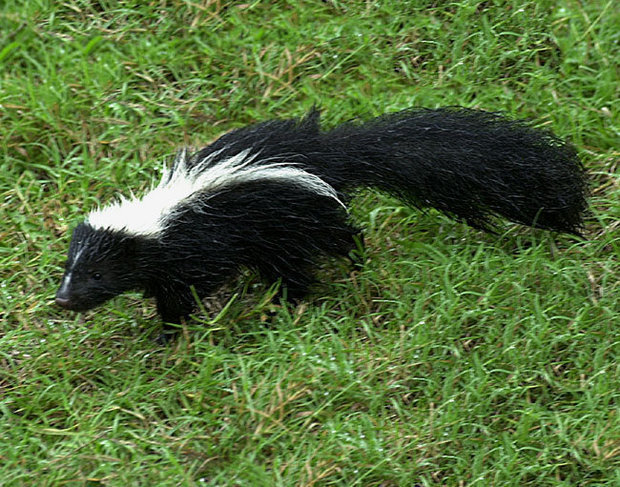Shop By Pest
Smell the love? Skunk mating season brings the stink
on February 19, 2016 at 9:00 AM, updated February 19, 2016 at 9:08 AM
“If a male comes around and they’re not interested, (females) can give off an odor from their anal glands to let the males know,” said Lori Lomoro, wildlife program coordinator for Blandford Nature Center.
But not to worry — the scent won’t linger in the air for long.
“They’ll be on the move,” Lomoro said.
Though skunks are active year-round, when the weather warms up, they are more likely to be out of their dens rummaging for food and potential mates, Lomoro said.
The skunk mating season begins in February and lasts through March. The babies will be born toward the end of May and June.
Skunks are most active at dawn and dusk and can be found in any environment, with the exception of heavily-wooded areas, Lomoro said.
Female skunks travel up to a mile and a half in a day, while males can travel up to seven miles.
Lomoro said the odor the females emit isn’t a full spray. That is reserved for more threatening situations because skunks tend to be frugal with the sprays.
“They only have 15 mL of fluid — five or six uses,” Lomoro said. “It takes them over a week to build that up again.”
If your dog gets sprayed in a run-in with a skunk, Lomoro said not to even bother with the tomato juice: Use a mixture of one quart hydrogen peroxide, 1/4th cup of baking soda and a teaspoon of liquid soap.
If clothing gets sprayed, Lomoro advises to toss it in the trash.
Full Article Here: http://www.mlive.com/news/grand-rapids/index.ssf/2016/02/can_you_smell_the_love_tonight.html

